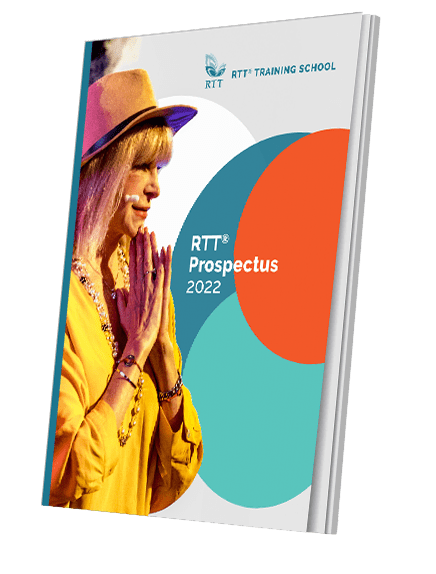When it comes to jobs for the blind, often, people think of careers like massage therapist, physiotherapist, telemarketer, or customer support assistant. But these days, thinking that those are the only types of jobs for visually impaired people is almost discriminatory.
Fortunately, blind people are more educated and more skilled than ever, and the amount and usefulness of the available technology allows blind people to do virtually any kind of job, especially through the internet.
In this article, we’ll disrupt some misconceptions about careers for the blind and, at the same time, provide examples of real-life jobs visually impaired people can do. We’ll also provide tips on how to address your job search and/or self-employment.
- The main myths surrounding careers for blind people.
- The best 10 examples of jobs for blind people.
- The main rights and resources for the blind.
- 10 tips for blind people to find a job.
The Main Myths Surrounding Careers for Blind People
Little by little, the labor market has been incorporating a diverse workforce, but there are still many myths about hiring people with disabilities. Due to the lack of knowledgeable contractors, this portion of the population doesn’t have opportunities consistent with their capabilities.
It’s necessary to know how to differentiate the myths about hiring people with disabilities from what’s true to ensure that the company can have an inclusive organizational culture. Key areas that must be preserved due to the diversity and inclusion of employees are the ones that must know the most about the subject and disseminate it.
Therefore, clarifying all doubts is essential to eliminate imaginary barriers.
7 Myths about hiring people with a disability
Discover some of the myths about hiring people with disabilities that can mean companies miss out on top candidates.
1. “It will be difficult to communicate with professionals with disabilities.”
Communication becomes difficult only when barriers are put up. The truth is that professionals know how to understand and make themselves understood according to the degree of impairment of their disability. However, it is necessary to prepare to deal with diversities, and, in this case, a consultancy can provide the necessary initial guidance.
To be able to talk to everyone effectively, leaders and staff must be prepared. Although at first, it seems a challenging task, over time, it becomes simple and routine.
2. “There are few professionals with disabilities.”
Altogether, there are more than 45 million people with disabilities in the country, and many of them prefer to work rather than receive government benefits. There are many professionals with disabilities who can occupy a job; they just need to have a chance.
They represent a good part of the population and have comprehensive qualifications, so they can hold different positions. Just offer the opportunity to understand that candidates are not lacking.
3. “People with disabilities do not have adequate qualifications.”
One of the myths about hiring people with disabilities is that they are unqualified and the company will have to teach them everything. This is not true. Many people with disabilities are trained, have graduated from college, and have specialist areas.
As with all professionals, some people with disabilities are more qualified and have a profile for an administrative or managerial position, and others are more suited to operational positions.
4. “People with disabilities have behavioral problems.”
Behavior problems can occur with any employee, whether they have a disability or not. Avoiding this type of complication requires the selection process to be adequate and managers to follow up with feedback whenever necessary.
5. “People with disabilities cannot be charged for performance.”
Every employee can have goals to be achieved and be evaluated for performance. Thinking it would be different in this situation is just another myth about hiring people with disabilities.
The performance targets must be adjusted according to the role and the conditions of work. If the company works with a performance bonus, there is no need to be afraid to apply it to an employee with disabilities. At no time will it be discriminatory if it follows a clear policy.
6. “People with disabilities cannot be fired.”
The dismissal of employees must follow a clear policy and must be applied for low performance and other cases provided for by law. There is no additional charge for dismissal; it takes place in accordance with United States labor laws and must follow all replacement procedures in accordance with the quota law.
7. “People with disabilities have no need for a career plan.”
It’s common to think that professionals with disabilities are just meeting quotas and that the company is doing them a favor by hiring them. But, like any worker, they act to meet goals, specialize, and don’t want to be treated any differently.
It is necessary to have a career plan so they can seek professional advancement, satisfaction within the company, and make their contributions.
Good professionals should not be left out of the workforce due to the myths about hiring people with disabilities. Knowledge and positive experiences can change these distorted ideas and promote diversity in organizations.
Myths about careers for the blind and visually impaired
We’ve established that disabled people have a hard time getting into the employment market or, on most occasions, are directed to certain jobs that are mistakenly thought to be “better suited” for visually impaired people.
The truth is that most myths about the careers for the blind crossover with most misconceptions about blindness itself. For that reason, here are some of the most common:
- “The blind see only darkness, nothing more.” Only approximately 18 percent of legally blind people are classified as totally blind, and most blind people can still differentiate between light and dark.
- “Blind people have special gifts: a sixth sense.” Blind people are not endowed with finer touch, hearing, taste, or smell. Blind people simply learn to pay more attention to information from their other senses.
- “Most blind people are proficient in braille and have a guide dog.” Unfortunately, only a small percentage of blind people have learned braille. Some teachers and education professionals discourage blind children from learning braille in favor of using print, even when reading print is slow and painful. Some professionals say that braille is slow and difficult to learn. This is not true. However, this discouragement often prevents the blind from learning braille. Only a small percentage of blind people use guide dogs. A white cane is a more common travel tool.
- “Blind people cannot work or have a job.” With proper training and opportunity, blind people can work competitively. Many organizations have helped many blind people to work in a wide variety of jobs. See a list of the types of jobs.
- “Blind people cannot access printed or manuscript materials.” The advent of computers and technology has made almost any type of printing accessible to the blind. Computer software can translate print into speech, enlarge screen images, and enlarge text to a readable size. Occasionally, human readers do the rest.
There are many misconceptions about blindness and what a blind person can and cannot do in our society. For example, many believe that blind people cannot cook, clean their house, care for their children, manage their finances, or work a competitive job. This is simply not true.
With the proper training and the opportunity to implement gained skills independently, the average blind person can perform the same tasks as the average non-blind person. Some programs focus on a positive approach to blindness that reinforces learning how to perform daily tasks without extra effort. In many cases, they even go as far as to help people achieve their potential and provide them with adequate skills.
The 10 Best Examples of Jobs for Blind People

Although blind people cannot do some jobs, there are plenty of professional paths they can follow in the most varied areas of expertise and industries.
Throughout history, people like Helen Keller, Ray Charles, and Stevie Wonder have shown that blindness does not impede greatness. Big companies have blind engineers. Some countries have blind politicians and government officials.
Here are some examples:
- Teachers and professors — Many blind people follow academic careers in many different fields. Relaying information is mostly spoken in lectures and seminars, and any other written documents can be done by assistants or with the help of technology. Remember Helen Keller, a blind and deaf teacher from Alabama in the early 20th century.
- Psychologists and counselors — The art of listening and providing guidance doesn’t require sight. In many cases, personality traits are much more valuable.
- Attorneys, judges, and politicians — Like other jobs, these do not necessarily require the person to see, as there is a structure to help them out. And when technology is not enough, there’s still braille to consider as a support language.
- Physical therapists, massage therapists, and chiropractors — Probably one of the first types of jobs when thinking of jobs for the blind. And there is a reason for that, as this kind of job is manual, where the hands play the most important role.
- Customer service, administrative, and virtual assistants — The technology available today helps the blind execute this kind of job flawlessly. Odds are you’ve spoken to a blind customer service assistant already.
- Writers, journalists, and broadcasters — Screen readers and dictation tools help blind people use computers easily. To write, you only have to be creative and comfortable using a keyboard, normal or braille.
- Artists and musicians — Ray Charles and Stevie Wonder do make it seem very easy. For this type of occupation, you only have to rely on your creativity.
- Professional athletes — There is a long list of blind professional athletes, especially when you look at the Paralympics. Blind people compete in almost every sport, from swimming and running to goalball, specially designed for the visually impaired.
- Life coaches, authors, and motivational speakers — Like psychologists and other counselors, life coaches and motivational speakers draw most of their inspiration from their life experiences and from a deep desire to help others. This type of job requires mostly a strong human connection and good communications skills.
- Researchers, engineers, and scientists — Often, blind people who want to improve life for the visually impaired choose this road. As an example, the inventor of TalkBack, the text-to-speech tool from Android phones, is a blind engineer that wanted to democratize access to mobile phones for all.
Surely many other careers and types of jobs can be done by blind or visually impaired people, but these are just a few.
What Are the Main Rights and Resources for Blind People?

When it comes to employment rights, the base is the same for every person: a right to work, a fair wage, paid leave, and a pension plan when offered.
Globally, the World Blind Union has been providing guidance and contributing to levelling the playing field for all visually impaired people. In the United States, the biggest development in disabled people’s rights has been the ADA, the Americans with Disabilities Act.
Generally speaking, under the ADA, individuals who are blind, deaf-blind, or visually impaired may not be denied full and equal enjoyment of the goods, services, facilities, privileges, advantages, or accommodations provided by a state or local government or place of public accommodation.
The statutes imposed by the Equal Employment Opportunity Commission make it illegal to discriminate against federal employees or job applicants based on race, color, religion, sex, national origin, disability, or age. Thus, a person who files a complaint, participates in the investigation of an EEO complaint, or objects to an employment practice made illegal under any of the statutes imposed by the EEOC is protected from retaliation.
Private sector employment is covered by Title I of the ADA. It prohibits private employers, state and local governments, employment agencies, and unions from discriminating against qualified persons with disabilities when it comes to job applications, hiring, firing, promotion, compensation, job training, and other terms, conditions, and privileges of employment. The ADA covers employers with 15 or more employees, including state and local governments.
It also applies to employment agencies and labor organizations. In addition, the ADA’s nondiscrimination standards also apply to federal employees under section 501 of the Rehabilitation Act, as amended, and its implementing rules.
Section 504 of the Rehabilitation Act of 1973 states, “No qualified individual with a disability in the United States shall, solely by reason of their disability, be excluded from participation, denied benefits, or subject to discrimination under any program or activity they receive. federal financial assistance.”
People with disabilities are gaining their space and equality in society, and the workspace is as important as any other aspect of social life. But, unfortunately, even with all these laws and rights, abuse or discrimination, professional or otherwise, will always happen. However, hopefully, it will occur less and less.
That said, a good alternative to working for a company is to build your own business—finding an area to focus all your skills and interests and be your own boss. It’s not easy or immediate, but the advantages are huge as you get the empowering feeling of achieving your goals on your own terms.
10 Tips for Blind People To Find a Job

Some tips are universal, but it’s always worth repeating them. Others are more specific for the blind and the visually impaired, and we’ve included them here. If you are looking for a job, these will come in handy. But remember that if, as a blind person, you are having trouble finding a job, you can always create your own.
1. Determine the jobs available for the visually impaired.
There are more options for the visually impaired in the workforce than ever before. Visually intense jobs are not suitable for the blind, but the vast majority of jobs in modern society can be customized to suit someone in your position. There are online job listings suitable for the blind. You may be surprised by the variety of jobs available.
Vision is just one of the five senses. Consider a profession that values one of the other senses more. Telemarketing, for example, is a sound-based profession and doesn’t require a lot of vision. A massage therapist, on the other hand, depends primarily on touch.
You should cross-reference typical jobs for the blind with the job you would be personally interested in doing.
2. Reach out to a disability organization.
As visual impairment can be a big problem in everyday life, there are organizations with the specific intention of helping people in this position. Contacting an organization for the blind can give you a big boost in your job search. These people know exactly what kind of difficulties you are going through and have a personal interest in helping you succeed.
3. Consider self-employment.
While there are more options for the visually impaired in the workplace than ever, there’s always the option to become self-employed. As your own boss, you can allow yourself as many concessions as you need to get the job done. Self-employment requires having a great skill or talent and having the vision to monetize it.
4. Work on your self-esteem.
Many studies have found that a blind person’s biggest obstacle to finding work is self-esteem. Many visually impaired people automatically assume that there is no place for them in the workplace because of their disability. Fortunately, this is not the case. Before you even start sending out resumes, it’s a good idea to nurture a positive attitude. Overcome negative thoughts and replace them with something positive.
5. Understand that limits are never as bad as they seem.
In many ways, living in today’s society requires you to make full use of your eyes. If this is not the case for you, it can be easy to feel hopeless about the situation. However, the vast majority of modern professions are available to the visually impaired.
6. Research success stories for the blind.
Look at inspirational stories of other people with disabilities who have enjoyed incredible success. You’ll find hundreds of success stories of people who have done great things despite their disabilities. Many of these success stories end up using their disability as a motivator to excel in other ways, so never let a disability stop you from doing what you are capable of doing.
7. Focus on your strengths.
Everyone has special skills and talents. Take some time to think about what you have to offer. Are you a skilled speaker? Are you good with money and numbers? Do you have a creative, artistic side? Just about any skill you have can be effectively monetized in some way.
8. Emphasize skills in technological fields.
Studies have shown that the best prospects for the blind in the current workforce lie with technological vocations. Because technology can be customized to suit the circumstances of the blind, it’s easier for the blind to succeed in these roles as opposed to a job that’s largely physical in nature.
Take night classes in computer technology or something of a tech-based nature and see if you like it. You may find you have a talent you didn’t previously know about.
9. Make use of assistive technology.
Assistive technology is available for most sorts of work in modern society. Any desk job should have utilities, like direct speech word processing, to help make things easier for you. There are lots of tools available to support you. For example, writing jobs can be done using a speech dictation program, while larger monitors and braille displays can be added to someone’s workstation.
10. Enlist in a school program.
There’s a chance you’ll need to attend school to learn skills before you’re ready to work. Whether going to a post-secondary school for a degree or learning basic life skills related to your disability, getting some help in skill-building looks good on anyone searching for employment’s resume.
Final Thoughts
Finding a job can be challenging, and it can feel even more stressful when faced with a disability. We hope to have demystified some common misconceptions about jobs for the blind while providing some clear ideas of what visually impaired people can successfully do.



